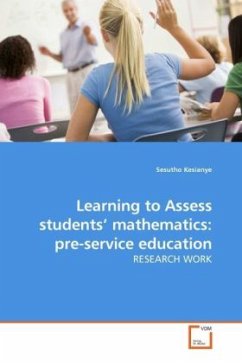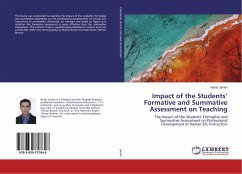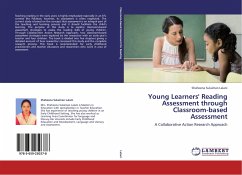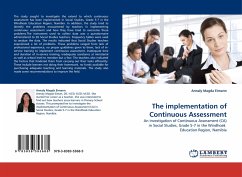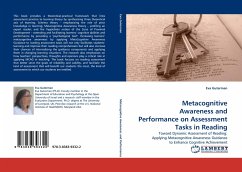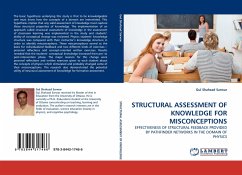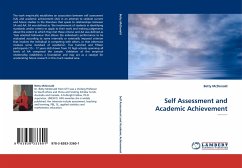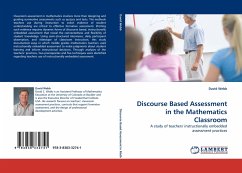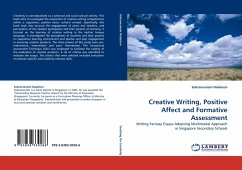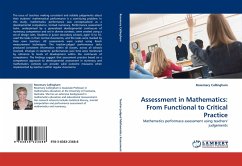
Assessment in Mathematics: From Functional to Critical Practice
Mathematics performace assessment using teachers'' judgements
Versandkostenfrei!
Versandfertig in 6-10 Tagen
52,99 €
inkl. MwSt.

PAYBACK Punkte
26 °P sammeln!
The issue of teachers making consistent and reliable judgements about their students mathematical performance is a continuing problem. In this study, mathematics performance was conceptualised as a developmental competence, termed numeracy. Performance assessment tasks, underpinned by a generalised developmental continuum of numeracy competence and set in diverse contexts, were created using a set of design rules. Students in junior secondary schools, aged 13 to 16, used the tasks in their normal classrooms, and the tasks were marked by their own teachers. All assessments were scaled using Ras...
The issue of teachers making consistent and reliable judgements about their students mathematical performance is a continuing problem. In this study, mathematics performance was conceptualised as a developmental competence, termed numeracy. Performance assessment tasks, underpinned by a generalised developmental continuum of numeracy competence and set in diverse contexts, were created using a set of design rules. Students in junior secondary schools, aged 13 to 16, used the tasks in their normal classrooms, and the tasks were marked by their own teachers. All assessments were scaled using Rasch measurement techniques. The teacher-judged performance tasks produced consistent information within all classes, across all schools involved. Changes in students performances over time were monitored by reference to levels of development within the continuum of competence. The findings suggest that assessment practice based on a competence approach to developmental assessment in numeracy and mathematics contexts can provide valid outcome measures when implemented by teachers within regular classrooms.



